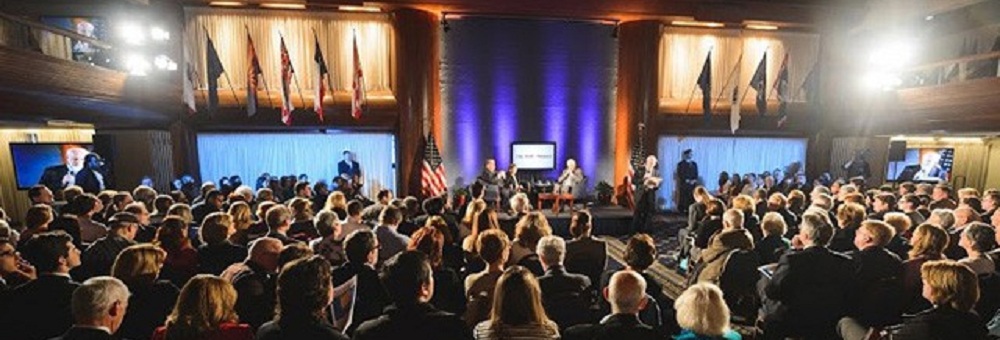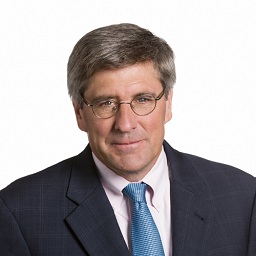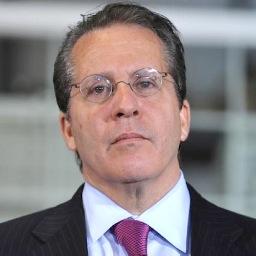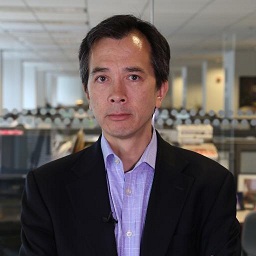

NABE Presidential Economic Advisers Debate 2016
October 13, 2016
2:00pm – 4:00pm
National Press Club
Washington, DC
Thanks to all who attended the debate!
Did you miss the debate? Watch the recording
Join us for the NABE Presidential Economic Advisers Debate 2016, featuring advisers to both the Clinton and Trump campaigns. The event will be hosted at the National Press Club and is open to all NABE and National Economist Club (NEC) members, and media. The debate will commence at 2:00pm ET at the National Press Club. A networking reception will follow the debate.
Speakers:
 Stephen Moore
Stephen Moore
Trump Campaign Adviser
Distinguished Visiting Fellow, Project for Economic Growth, The Heritage Foundation
Stephen Moore, who formerly wrote on the economy and public policy for The Wall Street Journal, is the Distinguished Visiting Fellow, Project for Economic Growth, at The Heritage Foundation. Moore, who also was a member of The Journal’s editorial board, returned to Heritage in January 2014 -- about 25 years after his tenure as the leading conservative think tank’s Grover M. Hermann Fellow in Budgetary Affairs from 1984 to 1987. As Distinguished Visiting Fellow at Heritage, Moore focuses on advancing public policies that increase the rate of economic growth to help the United States retain its position as the global economic superpower. He also works on budget, fiscal and monetary policy and showcases states that get fiscal houses in order. "One of the projects I’m going to be working on is how President Obama has discredited liberal ideas more than anyone,” Moore said in an interview with The Foundry upon his return to Heritage. “Everything he’s done has been such a massive failure — from the [economic] stimulus to health-care reform to bailouts to green energy. Moore’s early career was shaped by three people who had a profound influence on him: Julian Simon, the late Cato Institute scholar; Edwin J. Feulner, a co-founder of Heritage; and Art Laffer, the economist best known for the Laffer curve. “What makes them so great is they were willing to take on the conventional wisdom. They were subject to a lot of criticism for doing that,” Moore told The Foundry. “Those are the real change-makers.” Moore calls his creation of the Club for Growth the defining moment of his career. The organization, which he left in 2004, helps elect conservative members of Congress (including Heritage President Jim DeMint when he first ran for Senate). Moore next founded the Free Enterprise Fund before joining The Wall Street Journal. As senior economics writer for the newspaper’s editorial board, he covered Washington policy debates and state issues. “Because I’ve been a consumer of think tank material and policy research, I think I have a pretty good sense of what reporters want and how to get it to them in the way they want it,” Moore said. “Being timely — and not just offering opinion but giving them the facts and data is really critical.” Moore, who grew up in New Trier Township, Ill., received a bachelor of arts degree from University of Illinois at Urbana-Champaign. He holds a master’s of arts in economics from George Mason University.

Gene Sperling
Clinton Campaign Adviser
Former Director, National Economic Council
Gene B. Sperling was the Director of the National Economic Council and Assistant to the President for Economic Policy. Upon his appointment on January 7, 2011, Mr. Sperling became the first person to serve as NEC Director and principal economic policy advisor for two presidents: first under President Clinton from 1997 to 2001, and now under President Obama. In the Obama Administration, Sperling has played a key role representing the White House in budget negotiations with Congress as well as serving as the White House point person on several of the President’s top priorities including the American Jobs Act, manufacturing policy, housing, GSE reform, skills initiatives and patent reform. He played a key role in designing the Small Business Jobs Act, the payroll tax cut, the extension of training assistance and the expansion of tax credits for low income working Americans. During his eight years at the White House in the Clinton Administration, Sperling helped negotiate the 1993 Deficit Reduction Act, the 1997 Bipartisan Balanced Budget agreement, the increase in the earned-income tax credit and was a key architect of Saving Social Security First, and played key roles in the passage of the Children’s Health Insurance Program, the Hope Scholarship Tax Credit, Gear Up mentoring, New Markets Tax Credit and the Direct Student Loan program. Mr. Sperling’s work extends beyond economics. Prior to joining the Obama Administration, was the founder and Director of the Center for Universal Education at the Council on Foreign Relations and Brookings Institute and co-authored a book entitled What Works in Girls’ Education: Evidence and Policies from the Developing World. Mr. Sperling was also Senior Fellow for Economic Policy at the Center for American Progress, where he authored The Pro-Growth Progressive: An Economic Strategy for Shared Prosperity. Prior to his current appointment, Mr. Sperling served as Counselor to the Secretary of Treasury in 200 and 2010. In that role, Mr. Sperling served as lead policy advisor on fiscal, budget, tax, job creation, small business policy the ACA. He was also a member of the Auto Task Force as well as an advisor to Secretary Geihtner on financial crisis matters. Mr. Sperling graduated from the University of Minnesota and Yale Law School, and attended Wharton Business School. He is a native of Ann Arbor, Michigan, where his parents still live. He is married to Allison Abner and is the father of two children.
Moderators:
 Greg Ip
Greg Ip
Chief Economics Commentator
The Wall Street Journal
Greg Ip is chief economics commentator for The Wall Street Journal. He writes about U.S. and global economic developments and policy in the weekly Capital Account column and on Real Time Economics, the Wall Street Journal’s economics blog. From 2008 to January, 2015, he was U.S. economics editor for The Economist, based in Washington, D.C. From 1996 to 2008, he was a reporter for The Wall Street Journal in New York and Washington, D.C. Greg comments regularly on television and radio, including CNBC, National Public Radio, and the PBS Newshour. Greg has won or shared in several prizes for journalism. He was part of a team that was awarded a Pulitzer Prize for coverage of the Sept. 11, 2001 terrorist attacks. In 2005 he was recognized by the World Leadership Forum for a series of articles on the legacy of Alan Greenspan. In 2008 he was part of a team recognized by the Scripps Howard Foundation for coverage of the mortgage and housing crisis. In 2016 he was part of a team recognized by the National Press Club for a series of articles on global demographics. He is the author of “The Little Book of Economics: How the Economy Works in the Real World” (Wiley, 2010) and “Foolproof: Why Safety Can Be Dangerous and How Danger Makes Us Safe,” (Little, Brown, 2015). A native of Canada, Mr. Ip received a bachelor’s degree in economics and journalism from Carleton University in Ottawa, Ontario.
 Christine Romans
Christine Romans
Chief Business Correspondent
CNN
Christine Romans is CNN's Chief Business Correspondent and anchor of Early Start with John Berman and Christine Romans weekdays 4 am to 6 am ET. She won an Emmy award for her work on the series "Exporting America" about globalization and outsourcing American jobs overseas, and is author of three books: Smart is the New Rich: If You Can't Afford it—Put it Down (Wiley 2010) How to Speak Money (Wiley 2012) and Smart is the New Rich Money Guide for Millennials (Wiley March 2015). Romans is known as CNN's explainer-in-chief of all things money. She covers business and finance from the perspective of American workers and small business owners, translating what budgets and bailouts and economic data mean for families. Romans brings an award-winning career in business reporting. In 2014, she crossed the country reporting for her series, "Is College Worth it." In 2010, Romans co-hosted "Madoff: Secrets of a Scandal," a special hour-long investigative report examining disgraced financier Bernard Madoff and how he perpetrated one of the largest investor frauds ever committed by an individual. In 2009, her special "In God We Trust: Faith & Money in America" explored the intersection of how our religious values govern the way we think about and spend our money. Her series of reports "Living Dangerously" illustrated the risks and precautions for the nearly 30 percent of America's population living in the path of an Atlantic-coast hurricane. In "Deadly Hospitals," she examined how hospitals spread dangerous infections and what patients can do to protect themselves.
Underwriting Partner:

With special thanks to The NABE Foundation:
